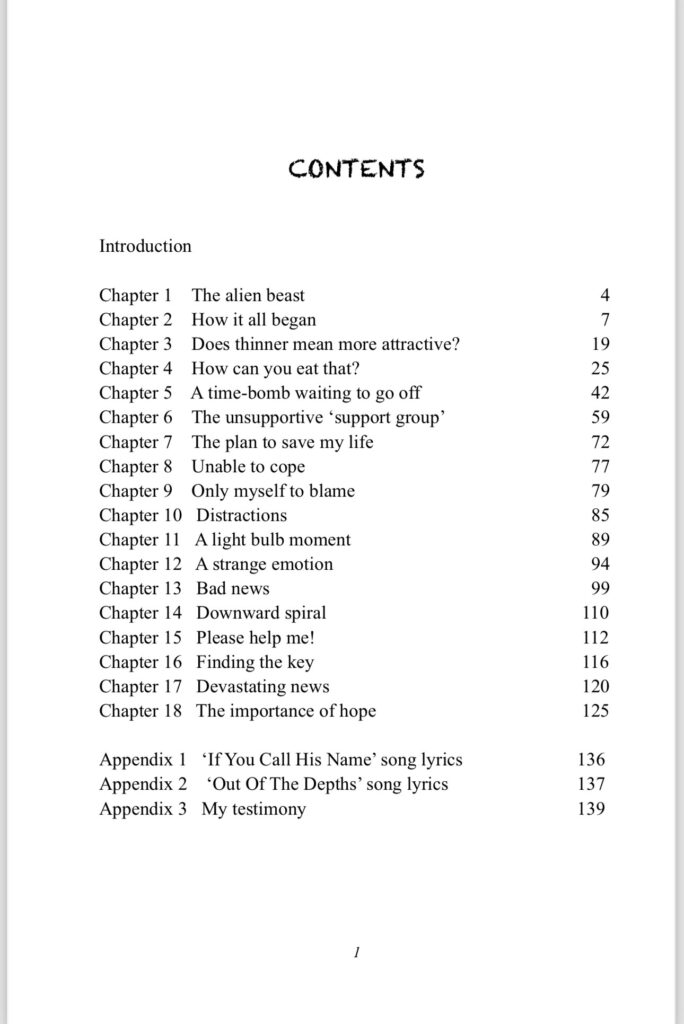
INTRODUCTION
I began my life as a confident, happy child but in my teenage years I started to suffer from lack of self-esteem and confidence. This developed into anorexia and depression which held me captive from my teenage years to my early 40s.
I am living proof that recovery from eating disorders is possible, but it is a tragic fact that all too frequently anorexics either die from their condition or stay an unhealthy weight for much of their lives.
Even if a healthy weight is achieved, a sufferer can still possess an “anorexic mind’ and not be free of the negative thoughts that accompany the illness. In my early 40s I was certain I had fully recovered, but a three-year relapse in my late 40s showed me that this was not the case. Now I feel it’s more realistic to speak about myself as being in remission from the illness.
During my long battle with anorexia, I rarely had any hope of being free and could never see a future for myself. I had such awful negative thoughts and found communication difficult, so I began to draw. I found drawing my thoughts not only gave me some kind of release from how I was feeling, but also allowed outsiders a peek into what I was going through. Some of those drawings are included in this book.
I also kept a diary. Now, years later, I am stunned – not only by how ill I had been, but also how desperate and misunderstood I had felt. Reading the diary has shown me how delusional I had been: what seemed to make perfect sense to me at the time I now see as evidence that I had lost all sense of reality. I realise now that my thinking was far too distorted and delusional for counselling to have had any chance of success. For much of the time I was too depressed to think rationally about what I was doing.
During those really bad times it meant a lot to have people not giving up on me, even though they didn’t know how to help. During my illness I was never able to speak to someone who had recovered from anorexia, perhaps because so many never recover or perhaps because they do not wish to relive their experiences, It would have made a huge difference to me if I had known that recovery was achievable.
I have come to realise the importance of hope and how it is crucial for recovery. My boyfriend – later my husband – Tony was a constant support and always believed that I would get better from the illness. Completing an Alpha Course was also a turning point and from then on I believed that God would help me through the difficult times. I know that this might not be everyone’s route to recovery, but coming to trust in God was paramount for me.
Some years ago, a dietician friend saw my drawings and felt that they could help people with anorexia or any other eating disorder: this motivated a deep desire in me to share my drawings and story. I also trust that my book will give parents, siblings, friends, partners, carers or nurses an insight into the thoughts and feelings that typically go through the ‘anorexic mind”.
The people and places in this book have been anonymised to avoid embarrassment to my family and friends, hospital medical staff and adult mental health teams. My story, however, is one-hundred-percent true.
I have made every effort to minimalise potentially “triggering” information and I would like to thank my dear friend Georgia for her insight and the feedback she gave me on this issue.
Lily John